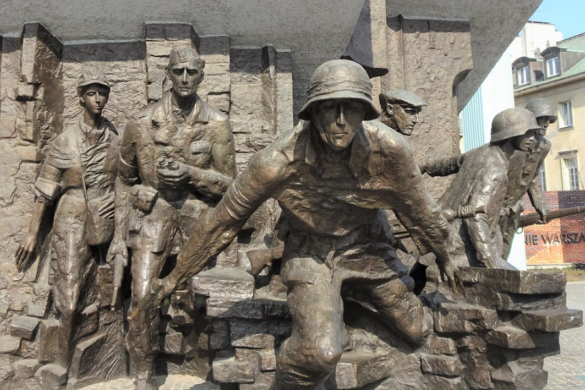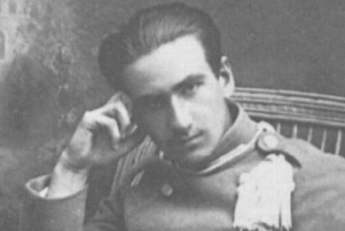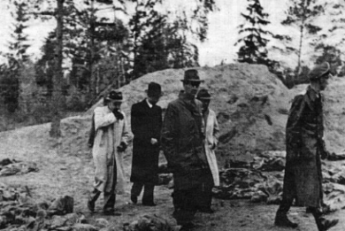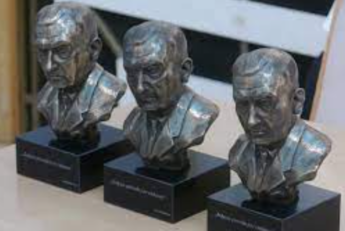
Józef Mackiewicz about the last battle for Warsaw
The Warsaw Uprising is undoubtedly one of the most popular topics after World War II. Arousing much controversy, but delightful and moving the hearts of many generations, the battle left its mark in many historical sources and polemics of journalists. J. Mackiewicz also gave his assessment of the Warsaw Uprising.
“A comprehensive assessment of the last battle for Warsaw as the capital of sovereign Poland must be based on the assumption of this sovereignty, i.e. the recognition that the Soviet invader (even if we assume that he was not worse) was equal to the German invader. Occasionally someone will get away with it, but usually this simple statement will be jumped off with dances and bows, and in the end, God and truth, no one has given a precise definition: are the Soviets our enemy or are they not our enemy? Are they an invader or not? Did they take away our independence or didn’t they? Is “Country” – “Poland” or just a foreign occupation?” – wrote J. Mackiewicz in the “Wiadomości” newspaper in 1947.
Therefore, the publicist proposes that anyone who invades a sovereign state should be defined as an enemy. If this assumption is made, there is no room for conjecture and the Soviets can be clearly defined not as liberators but as invaders.
Let’s go back to the uprising. The publicist emphasizes that the controversially described action to liberate Warsaw actually had a very noble goal: Poles sought to liberate the capital from the hands of the enemy. Mackiewicz describes both the Germans and the Soviet army as the enemy. In addition, the publicist adds that the conditions of the uprising were not bad, although they did not suit the Soviets.
“On July 31, the remains of wagons were removed from only one Western Railway Station. There was no order or control anymore. Anyone who wanted to could sit down and ride without any pass. In such conditions, the uprising, which broke out only on August 1 in the afternoon, could count on complete success and minimal losses, at most in skirmishes with the retreating rear guards. Formally, before dawn, Warsaw would be liberated by the Polish army, and the entering new invader would be greeted by a sovereign banner planted in the sovereign, free capital. Well, this is what the Bolsheviks wanted to avoid at all costs, the journalist considered.
Nevertheless, the leaders of the uprising made one mistake – they did not anticipate the behavior of the Germans (because it was believed that Germany, which was retreating and losing the war, would not want to fight for the Polish capital). It was also not foreseen that a secret anti-Polish pact between Soviet Russia and Nazi Germany would be “signed”, the main purpose of which was to prevent a Polish victory.
“It is characteristic that so far the rapid change of the German position at the end of the uprising has not been subjected to any serious analysis. And the thing was obvious. They were deleted by the censors “die polnischen Banditen”; the insurgents were granted the rights of a regular army. It is also known that the troops of the Home Army marching out after the capitulation were greeted with an orchestra, and that General Bor was invited to numerous talks during which he was to listen to new proposals,” analyzed J. Mackiewicz.
The publicist was willing to defend the insurgents and the noble goal, which was the liberation of the Polish capital during the last battle for Warsaw. Unfortunately, “what if” will not change the events of the past, although neither the insurgents, nor the commanders, nor even the Soviets could have foreseen that Hitler would want to take Warsaw at any cost, and that the German army would not fight only at the rear of the front.
Nevertheless, J. Mackiewicz does not believe that the insurgents should bear the entire responsibility for the destroyed city. Poland did not want the “liberators” – the Soviets – to later come to its territory. Poles wanted an independent, sovereign state, although they miscalculated. Not with possibilities, but with Hitler’s madness and the plans of the Soviets.
Based on an article by J. Mackiewicz in the “Wiadomości” newspaper from 1947.







